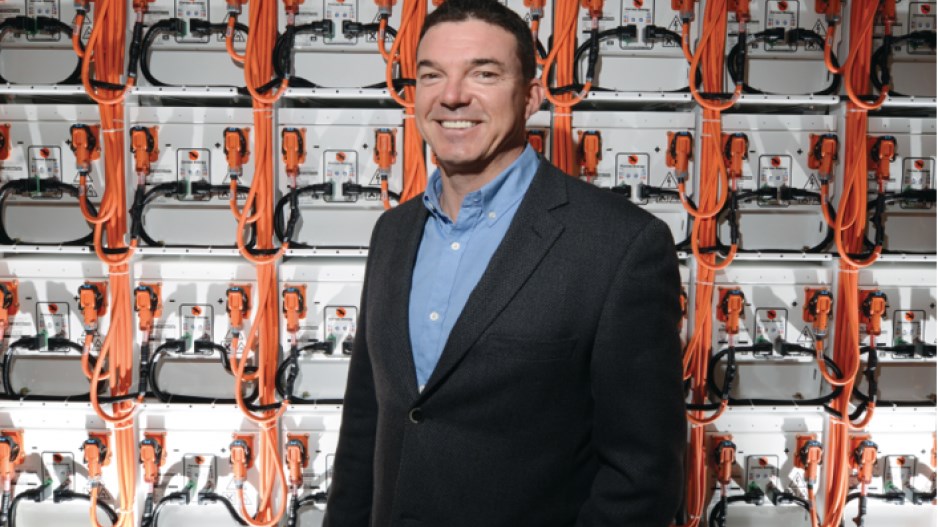British Columbia's burgeoning clean-tech industry is set to become a point of pride for a province hoping to be a green leader. With its reputation for technological excellence, the sector is supporting the global fight against climate change while creating thousands of jobs in B.C.
But ask those homegrown companies about the reason for their success and chances are they will point to lucrative contracts abroad rather than encouragement in their own backyard.
Take Richmond's Corvus Energy, for example, and its state-of-the-art lithium-ion batteries, developed for marine propulsion but now used for other heavy-power needs as well. It recently signed a deal with one of Europe's largest ferry operators to provide integrated energy storage systems for three hybrid ferries.
The ferries, which sail every half-hour between Denmark and Germany, will be the largest fleet of hybrid vessels in operation, Corvus said in a news release, adding that the result will be significantly reduced greenhouse emissions, lower maintenance costs and better engine performance. But Corvus was shut out of an opportunity to install the same technology in B.C.'s own ferries.
Or consider Endurance Wind Power of Surrey, which has manufactured and sold hundreds of small turbines for homeowners, businesses and institutions around the world but had little uptake in Canada.
The company has instead turned its attention to the United Kingdom, where it recently installed its 500th turbine and even opened a new manufacturing plant in the West Midlands, one that is expected to become a centre for international exports and produce 100 farm turbines a year.
Randeep Dosanjh, Endurance's marketing specialist, said the United Kingdom is a prime location for the company because of high energy prices and financial incentives to encourage Britons to generate their own power and sell any excess back to the grid.
Because B.C. does not have such “feed-in” tariffs, or comparable energy prices, Endurance sees little local potential, Dosanjh said in an interview.
“You're not going to find a bunch of our turbines here at all.”
Reliance on offshore markets is typical for B.C.'s renewable energy companies.
“It's a common theme in B.C.'s clean-tech sector,” said Jill Tipping, a vice-president of Schneider Electric's solar business in Burnaby. “We develop technology locally and deploy it globally.”
B.C. has more than 200 clean-tech companies with annual revenue of about $2.5 billion – but most of the business is export-oriented.
Having a strong economy in B.C. has helped clean-tech companies get established, but Tipping said continued growth requires increased consistent financial support. This year's provincial budget offered some encouragement, by extending B.C.'s scientific research and experimental development (SRED) tax credit for three years, but more help is needed, she said.
The government should make the SRED a permanent measure while also offering more direct funding for research and development, she added.
Grant Brown, global marketing vice-president for Corvus, said clean-tech companies in B.C. have, by and large, created their own success with little help from governments, apart from the trade commissioners who facilitate introductions abroad.
“A lot of [politicians] pay lip service to the idea of helping the clean-tech sector, but, really, the focus is on mineral extraction,” he said. “It's been the status quo for so long that our entire country is dependent upon it.”
Globe Advisors, a Vancouver sustainability consulting firm, says B.C. is a clean-tech leader, but public policy lags.
“Greater support for developing the province's expertise and the ability to exploit both domestic and international opportunities is paramount to this sector's success,” it states in a 2012 report.
Not enough Canadian companies and institutions are buying clean technologies developed locally, says an Action Canada task force, and that impedes growth by suggesting a lack of confidence at home.




